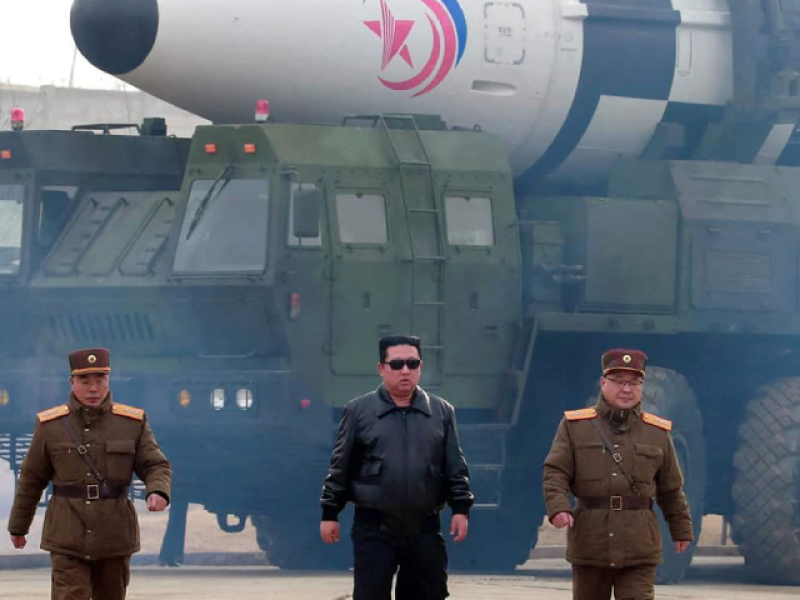
North Korea confirmed that it test-fired its biggest long range missile on Thursday.
North Korean state media confirmed that the communist country fired its biggest intercontinental ballistic missile (ICBM) into the sea on Thursday under the leadership of Kim Jong Un to bolster its defenses in preparation for a "long confrontation" with the U.S. The North Korean leader oversaw the launch of what they described as a "new type" of ICBM called the Hwasong-17.
According to CBN News, South Korea's Joint Chiefs of Staff and Defense Ministry described the long-range missile fired from the Sunan district near the capital of Pyongyang traveled 1,080 kilometers or 671 miles, while reaching a maximum altitude of more than 6,200 kilometers or 3,852 miles. This meant that the missile may have been fired on a higher angle to avoid landing on the territorial waters of Japan, whose Deputy Defense Minister Makoto Oniki provided similar flight details.
Meanwhile, Japanese Prime Minister Fumio Kishida told reporters after arriving in Belgium for the G-7 summit meetings that the missile may have landed near Japanese territorial waters near the northern island of Hokkaido.
"It's an unforgivable recklessness. We resolutely condemn the act," Kishida declared. According to Tokyo's Chief Cabinet Secretary Hirokazu Matsuno, North Korea's long-range missile flew for up to 71 minutes and that they may search for debris inside the Japanese exclusive economic zone to analyze the weapons technology.
South Korean President Moon Jae-in called an emergency National Security Council meeting, during which he decried the North Korean leader's move of breaking a self-imposed moratorium on ICBM tests. He argued that North Korea was posing a "serious threat" to the region and the international community. Moon told officials to pursue "all possible response measures" in terms of its alliance with the U.S. and other international partners.
In 2017, Kim engaged in several nuclear explosive and ICBM tests right before suspending such testing ahead of his first meeting with then-U.S. President Donald Trump. Critics say that Kim is resorting to such displays of military power to deflect concerns over the North Korean economy that continues to struggle as a result of the COVID pandemic.
Al Jazeera reported that according to North Korea state media, Kim ordered the long-range missile test because of the "daily-escalating military tension in and around the Korean peninsula" and the "inevitability of the long-standing confrontation with the U.S. imperialists accompanied by the danger of a nuclear war."
Kim declared, "The emergence of the new strategic weapon of the DPRK would make the whole world clearly aware of the power of our strategic armed forces once again."
The North Korean leader warned, "Any forces should be made to be well aware of the fact that they will have to pay a very dear price before daring to attempt to infringe upon the security of our country."
The U.S. has responded to North Korea's long-range missile launch by announcing new sanctions against the country and its illicit weapons program, specifically targeting a Russian and North Korean company, as well as North Korea's Second Academy of Natural Science Foreign Affairs Bureau. Meanwhile, the U.N. Security Council will hold an emergency meeting on the long-range missile test on Friday.



















